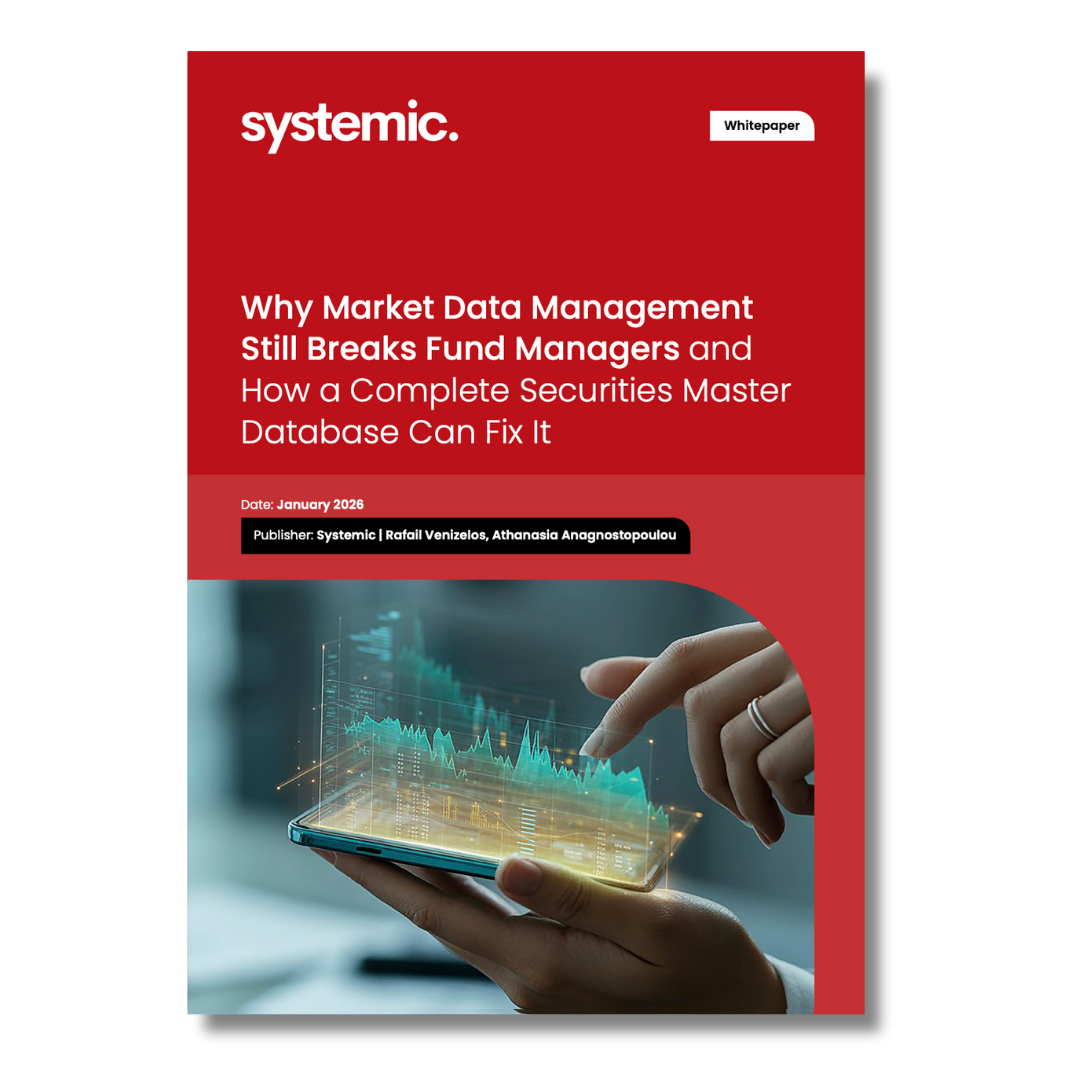A selection criterion frequently encountered is relevant to a clearing firm’s capability to simultaneously provide front, middle as well as back office services. Actually, many market participants promote execution, clearing and prime brokerage services, by offering discounts or “free-of-charge” bundles. Although this solution seems to be convenient, one should take into account the fact that financial markets evolve rapidly (electronic trading venues, new trading platforms, increased transparency, new capital regulations, competitive pricing etc.), so if a one-fits-all solution is chosen one needs to be concerned about the service provider’s capability to continuously adapt in all these areas as at the end of the day, any additional processing cost will reduce the broker’s competitiveness.
In the next paragraphs, let us focus on some important factors for the selection of a clearing firm:
1. Availability and reliability of Interface files
For every broker it is crucial to receive – at timely intervals – electronic information regarding all processed activity, including trades, profit & loss, fees, margin, collaterals and bank balances. This information is sent by the clearing firm and imported into the broker’s own systems, including those of accounting and risk management. Such information is typically delivered either in a flat file format, or, in more sophisticated environments, through a set of automated queries (Application Programming Interface or API Calls).
In any case, the clearing firm should describe explicitly the detailed specifications of all the files or functions they can provide, as well as the format and the frequency of each deliverable.
The robustness of such information is yet another story. We all too often witness interface files or API functions returning duplicate entries or other erroneous information, causing big problems to every interconnected system.
2. Multimarket and instrument settlement accuracy
It is important for a clearing firm to cover different types of business models and to be able to adapt to whatever might be needed in the future. It is absolutely necessary that the clearing firm can settle accurately all product types, including financial derivatives, spot securities and currency transactions that a broker might need to execute both via any organized exchange, or over the counter (OTC). As the broker’s business model evolves, the Clearing house of choice should always see that the settlement process remains streamlined and accurate whatsoever.
3. Collateral & Margin requirements
A broker is exposed to loss risks. If the margin increases or the value of the corresponding collateral declines below the investor’s exposure, then the broker suffers losses that could lead to potentially deficit accounts. A clearing house reduces the settlement risks by netting transactions between multiple counterparties, by calculating accurately margin demands and requiring margin deposits, by conducting independent valuation of trades and collaterals, by monitoring the risk within client portfolios through “risk-based” margin methodologies that account for the worst case scenario.
4. Commissions & Fees
Exchange and clearing transaction fees have become increasingly complex, due to the introduction of new market standards. New advanced fee schemes are continuously designed, aiming to attract new investors. In this way, clearing firms should ensure that the transaction fees and the relevant rebates are handled accurately and efficiently. Moreover, they should be able to give competitive prices for the settlement of trades, depending on the transaction volume.
5. Reconciliation process
Brokers should establish procedures for ensuring the reliability of the results yielded by the clearing firm. In most cases, brokers have their own internal systems, which they feed with input data to calculate settlement processes, margins, fees and balances. In this way, they manage to identify discrepancies at an early stage and to correct them quickly. Hence, it is very important to have nearly real-time clearing files available, or if this is not possible to have them at least once every day. Additionally, cross checks, performed by both the Clearing House and the Broker, ensure that every customer is being charged correctly.
6. Reporting demands
Clearing firms should deliver to their brokers, on time, daily statements with complete information about cleared derivatives trades and margins, so that own accounts, institutional and individual clients have prompt access to the status/view of their portfolios. Furthermore, it would be very useful for a firm to give all the required information in accordance with the EMIR Regulation, so that transactions, positions, valuations and collaterals details could be submitted to the trade repositories in the proper format. Depending on the technology and tools used, a web interface should be available for reporting services, ensuring quick and easy access.
7. Direct & Efficient Support
Financial derivatives markets operate on a 24-hour basis; hence, direct, specific and effective support is highly needed. Clearing firms should be available at all times, so that Brokers could open a case online and get prompt support via email, chat or phone, avoiding any waste of time and money.
8. Real Value – Hidden costs
The cost of clearing services varies and usually determines the real value of what the broker actually gets. Of course, high costs do not necessarily translate to quality services, however, the contrary is also true. Low-cost services may not be entirely up to the expectations of the customer, while hidden costs might incur following every request that is not included in the agreed scope of work.
Brokers should remember that they must be free to change their clearing firm in case they are not satisfied. Medium-term contracts are, therefore, preferable. Obviously, the selection of a clearing firm is not a simple and easy decision. One should always bear in mind not only the current market conditions, but also any future change that might be round the corner. The most important thing is to find what serves best current demands and future needs, and build a good relationship with the clearing firm, a relationship that could evolve to a truly effective partnership.






